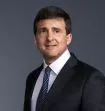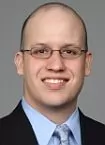Originally published May 25, 2012
Keywords: FCC, do not call registry, public safety answering points, PSAPs, automatic dialing, Telephone Consumer Protection Act, TCPA
On May 22, 2012, the Federal Communications Commission (FCC) issued a Notice of Proposed Rulemaking to implement certain provisions of the Middle Class Tax Relief and Job Creation Act of 2012 (Tax Relief Act). The Tax Relief Act requires the FCC to create a Do Not Call registry for telephone numbers assigned to emergency response facilities, known as public safety answering points (PSAPs), and to prohibit the use of automatic dialing equipment to contact those numbers. The Tax Relief Act establishes monetary penalties between $10,000 and $100,000 per call1 for entities that use automatic dialing equipment to contact PSAPs, and between $100,000 and $1 million for entities that disclose or disseminate registered numbers.
The Telephone Consumer Protection Act (TCPA) already prohibits use of an automatic telephone dialing system to make non-emergency calls to any emergency telephone line without express consent. The Tax Relief Act proposes to give PSAPs broad discretion to determine which numbers should go on the Do Not Call registry, including those used by secondary PSAPs. The FCC seeks comment regarding whether there are any types of autodialed calls that the FCC should permit to be made to numbers on the registry, though the FCC acknowledges that the Tax Relief Act lacked an explicit exemption for prior express consent.
The FCC also proposes that anyone who uses an automatic telephone dialing system qualifies as an operator of automatic dialing equipment for purposes of the Tax Relief Act, although the law does not use or incorporate the TCPA's "automatic telephone dialing system" terminology or statutory definition. The FCC proposes adopting the TCPA's definition of automatic telephone dialing system as equipment "which has the capacity to store or produce telephone numbers to be called, using a random or sequential numbers generator; and to dial such numbers." The FCC further proposes to interpret the term to include "any equipment that has the specified capacity to generate numbers and dial them without human intervention whether or not the numbers called actually are randomly or sequentially generated or come from a calling list."
The FCC is also seeking comment on how to categorize violations by operators of automatic dialing equipment who are hired to make calls on behalf of third parties—specifically, whether the operator should be solely responsible for compliance, or whether the third party should be jointly or severally liable. Finally, the FCC is seeking comment on whether there should be a safe harbor for operators who can demonstrate that a prohibited call or disclosure was a result of an error despite routine business practices designed to ensure compliance, and whether operators should have to certify compliance with the new rules.
These proposed rules may have significant compliance implications because they would create a Do Not Call Registry for all types of calls, not just telemarketing calls, and are not likely to provide a broad exemption for calls made with prior express consent. In addition, failure to comply with the new rules could result in significant monetary penalties.
Footnote
1. The FCC proposes to include text messages in what constitutes a call.
Learn more about our Consumer Litigation & Class Actions, Government and Privacy & SecurityPrivacy & Security practices.
Visit us at mayerbrown.com
Mayer Brown is a global legal services provider comprising legal practices that are separate entities (the "Mayer Brown Practices"). The Mayer Brown Practices are: Mayer Brown LLP and Mayer Brown Europe – Brussels LLP, both limited liability partnerships established in Illinois USA; Mayer Brown International LLP, a limited liability partnership incorporated in England and Wales (authorized and regulated by the Solicitors Regulation Authority and registered in England and Wales number OC 303359); Mayer Brown, a SELAS established in France; Mayer Brown JSM, a Hong Kong partnership and its associated entities in Asia; and Tauil & Chequer Advogados, a Brazilian law partnership with which Mayer Brown is associated. "Mayer Brown" and the Mayer Brown logo are the trademarks of the Mayer Brown Practices in their respective jurisdictions.
© Copyright 2012. The Mayer Brown Practices. All rights reserved.
This Mayer Brown article provides information and comments on legal issues and developments of interest. The foregoing is not a comprehensive treatment of the subject matter covered and is not intended to provide legal advice. Readers should seek specific legal advice before taking any action with respect to the matters discussed herein.

